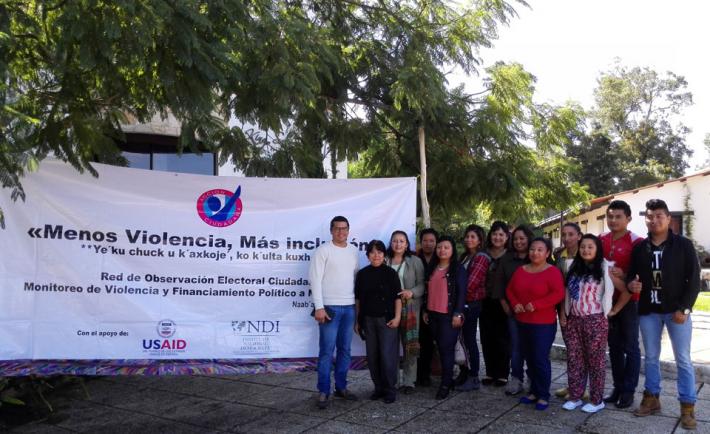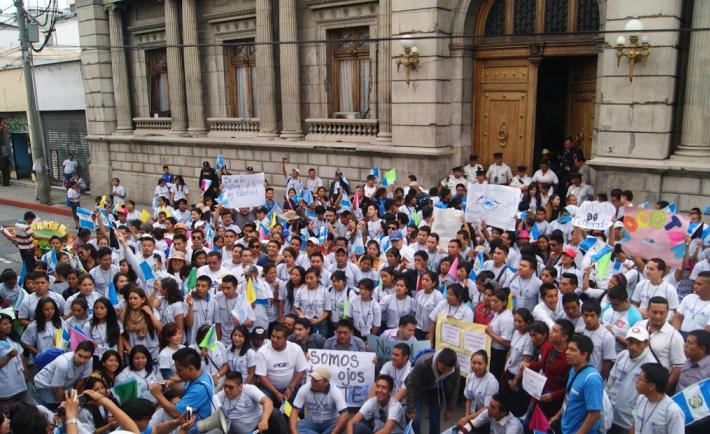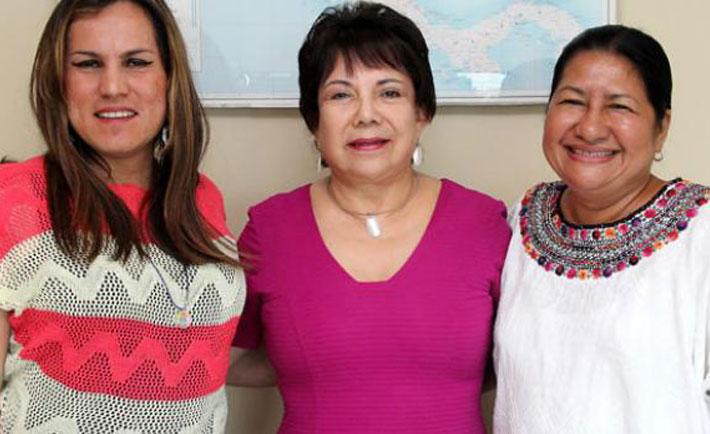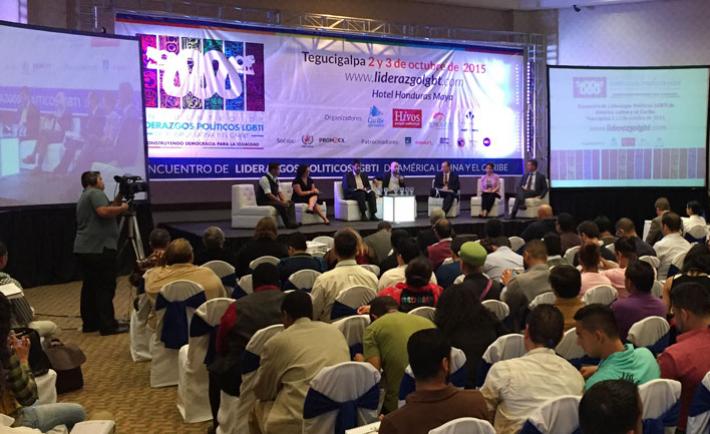Louis Enrique Borrayo Hernandez is a young Guatemalan man who learned about the election observation through Association Ixim, the local organization that supported Citizen Action’s (AC) observation in the department of Sacatepéquez, just outside of Guatemala’s capital. We recently spoke with Louis, as well as his colleague Theylor (who preferred that we not use his full name), about why they decided to join the AC network as long-term observers. Their answer was clear: “we wanted to make a difference in our community and our country,” they both agreed.
Election Observers Promote Tolerance and Transparency in Guatemalan Communities
Indigenous Ixil Women Take a Stand Against Gender-Based Violence in Guatemala
_1_1.jpg)
A Mayan ceremony celebrating the launch of the “Less Violence, More Inclusion” observation effort in Nebaj, Quiche, Guatemala, to reduce election violence and illegal campaign activity leading up to the Sept. 6 presidential election.
The Network of Ixiles Women is based in Nebaj, which is located in a remote valley in the Ixil area of the department of Quiché, Guatemala -- a region that is predominately Maya-Ixil. The organization was one of 13 local groups that partnered with Citizen Action (AC) to observe electoral violence and campaign spending across 20 municipalities. We recently spoke with the organization’s coordinator, Juana Baca, as well as two observers, Paula Ramírez and Andrés Saquic, about their experience participating in the “More Inclusion, Less Violence” electoral observation network.
Not Just Observation, Guatemala Election Monitoring Opens Doors to Dialogue and Civic Education
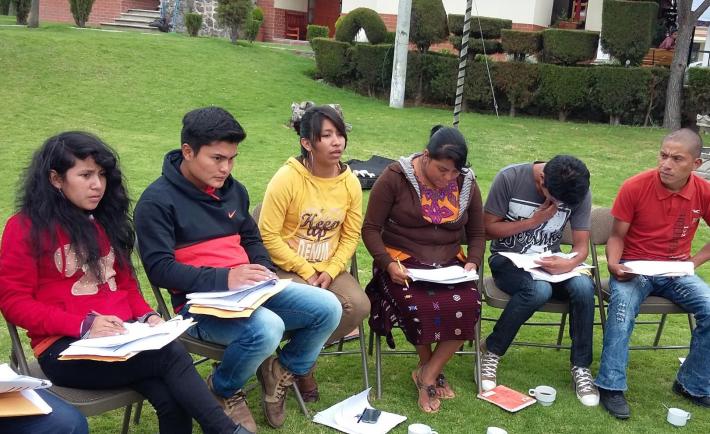
Milvia Roxana Lopez (third from left) speaks during a training for citizen election observers in Guatemala. “Self-confidence was key,” she said, referring to her ability to break through gender-based stereotypes as an election observer documenting incidents of violence and educating voters during last year’s historic elections.
At 25 years old, Milvia Roxana López, an indigenous woman, may be diminutive in size but she exudes a confidence that demands she be heard. As an observer who monitored electoral violence, Milvia met with leaders from her town and surrounding communities to document acts of electoral violence -- not an easy topic to broach in country that has one of the highest homicide rates in the world. “For me, self-confidence was key,” declared Milvia, referring to her role as an election observer. “To many people, it’s not the same when a woman says something as when a man says something. I don’t know where I got the strength, but I did it.”
Welcome to Voices from Guatemala
Since the Guatemalan elections concluded in October 2015, NDI has held conversations with local partner organizations and election observers to better understand their experiences, as well as their hopes for their communities and the country. In order to highlight their voices, we will post a series of blogs documenting stories of inclusion and change -- the people behind the headlines working to build a strong democracy in Guatemala.
Global Women's Leadership Program Brings Women MPs to World Bank 2016 Fragility Forum
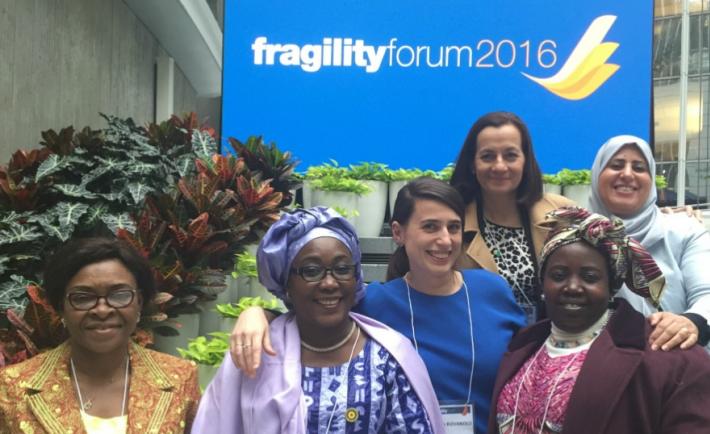
After the delegates' closing remarks at the 2016 Fragility Forum, from left to right: Stella Ngwu (Nigeria), Aissata Toure Diallo (Mali), Besa Rizvanolli (NDI), Clara Rojas (Colombia), Sabina Dario Lokolong (South Sudan), Dr. Sultana Mismari (Libya)
In fragile and violent places, whether it is Colombia, Libya, Mali, Nigeria, or South Sudan, the role of women during crisis, war, and post-conflict reconstruction has been critical. Conflicts often force women to get organized and to safeguard the basic necessities that bolster day-to-day life in each family. They also participate in fighting wars, and in rebuilding their communities. Women act as peacekeepers, relief workers, and mediators. Yet, when peace talks occur, women are not invited to the table and peace agreements are often drafted without the critical perspectives of women.
With this reality in mind, under USAID’s Global Women’s Leadership Program (GWLP), NDI brought a delegation of women members of parliament (MPs) to the World Bank Group Fragility Conflict and Violence Forum 2016 (also referred to as the Fragility Forum) in Washington, DC in early March.
Venezuela, Burma, Burkina Faso: Connect the Democratic Dots…

A Burmese anti-government protest in front of the Petronas Twin Towers. Photo credit: Off2riorob CC BY
In the four weeks between November 8 and December 6, 2015, the peoples of Myanmar (Burma), Burkina Faso and Venezuela delivered surprises: resounding defeats to military rule, strongman domination and populist authoritarianism. These bright spots are the consequence of perseverance by democratic activists in the face of repression. They also highlight the importance of elections as a peaceful means for people to bring about change.
Interview: Flavia Freidenberg Discusses Strategies to Increase Women’s Political Participation
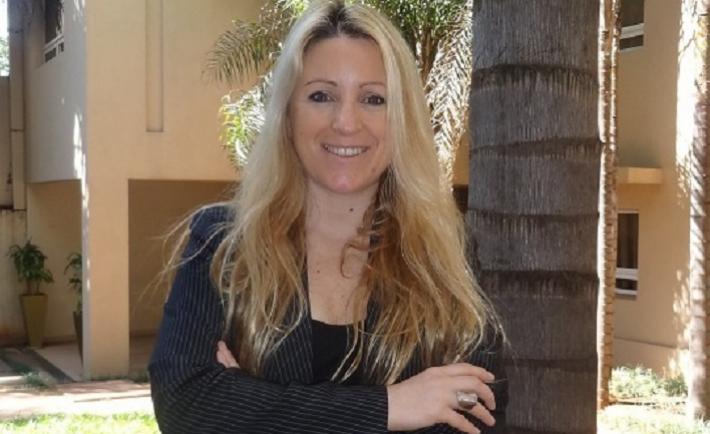
Flavia Freidenberg is a researcher and professor at the Institute of Legal Research of the National Autonomous University of Mexico.
Andrea Fernandez, NDI resident program officer in Colombia, recently interviewed Flavia Freidenberg, researcher and professor at the Institute of Legal Research of the National Autonomous University of Mexico. Flavia answered a number of questions about strategies to increase women’s political participation in Latin America. Read highlights from their interview or watch a video of the full discussion.
Transforming Thoughts: The Realities of the LGBTI Communities
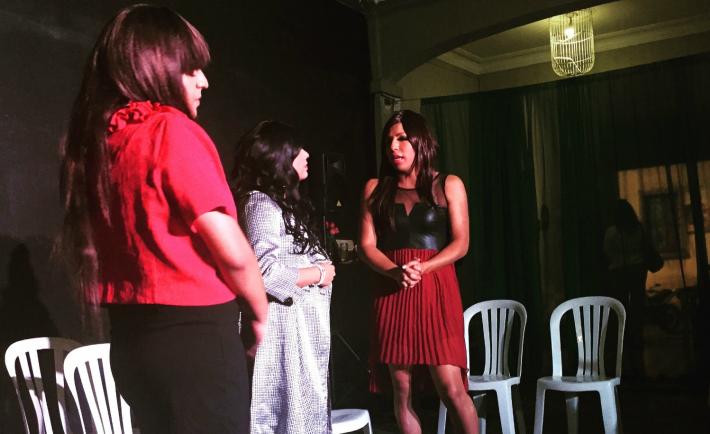
The LGBTI communities in Guatemala uses art to increase tolerance, understanding and political participation.
In the captivating play “Transforming Thoughts: The Realities of the LGBTI Communities,” members of the lesbian, gay, bisexual, transgender, and intersex (LGBTI) communities showed the harsh realities of life as a transgender woman in Guatemala. Drawing on stories from their personal lives, and the broader LGBTI communities, the actors weave together scenes demonstrating lack of opportunity, abuse and survival. I
Podcast Discusses Guatemala’s Political Environment with Local Partners
With funding from the United States Agency for International Development (USAID), the Consortium for Elections and Political Process Strengthening (CEPPS) is implementing the program “Elections: More Inclusion, Less Violence” to monitor and mitigate electoral violence and illicit financing of electoral campaigns, support the Supreme Electoral Tribunal’s administration of the elections, strengthen traditionally marginalized civil society groups and increase social inclusion in the electoral process. Each CEPPS partner invited one of their local partners to discuss a range of topics, including the political crisis, election results, the administration of the elections, civic political participation and the importance of making the electoral process more inclusive and representative of all members of Guatemalan society.
Gathering Launches Movement for LGBTI Political Inclusion in Latin America and the Caribbean
“After Tegucigalpa, we will be a social movement,” declared Wilson Castañeda, the director LGBTI rights organization Caribe Afirmativo at the opening of the second annual Lesbian, Gay, Bisexual, Transgender and Intersex (LGBTI) Political Leaders Conference for Latin America and the Caribbean. The gathering, held in the Honduran capital on October 2 and 3, brought together more than 300 LGBTI political leaders, activists and allies from across the region. Over two days of panels and workshops, participants discussed progress, challenges and best practices for increasing LGBTI communities’ political participation.

